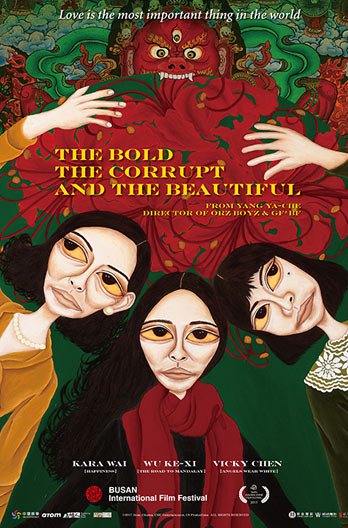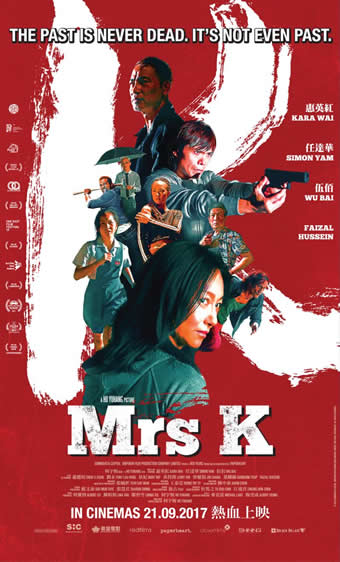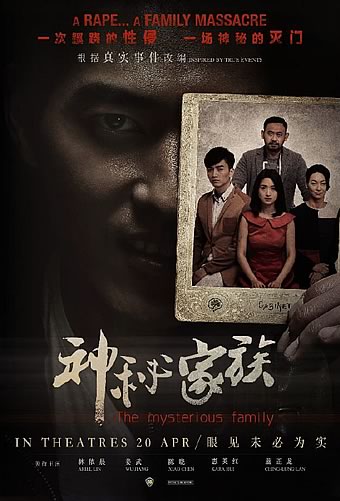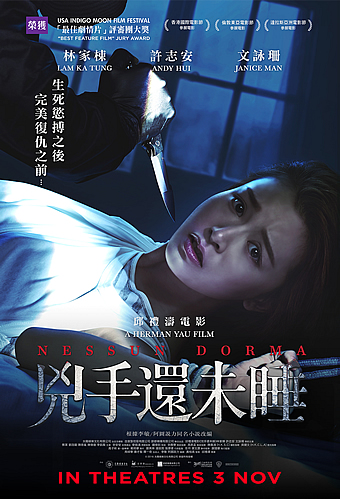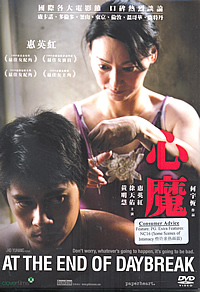THE BOLD, THE CORRUPT AND THE BEAUTIFUL (血观音) [SCFF 2018]
Genre: Drama
Director: Yang Ya Che
Cast: Kara Wai, Wu Ke-Xi, Vicky Chen, Aaron Fu, Wen Chen-Lin
Runtime: 1 hr 52 mins
Rating: M18 (Sexual Scenes)
Screening Dates: 30 April, 3 & 5 May 2018 (visit scff.sg/films/the-bold-the-corrupt-and-the-beautiful/ for showtimes)
Synopsis: Madame Tang colludes and mediates between the government and the private businesses for the benefit of her all-female family. One case does not go according to plan, and an entire family close to Madame Tang fall victim to a gruesome murder. Ambition, desire and lust eventually change Tang’s relationships with her own family forever.
Movie Review:
Ambition, corruption and beauty make nasty bedfellows in writer-director Yang Ya-che’s Golden Horse Award-winning crime drama set in the 1980s, which pivots on a family of three generations of women. The head of the clan is the ruthless matriarch Madame Tang (Kara Wai) who, though ostensibly dealing in antiques, is in fact acting as go-between for dirty businessmen and crooked politicians looking to profit from land speculation. Assisting Madame Tang in her nefarious schemes is her adult daughter Tang Ning (Wu Ke-xi), who loves and loathes being her mother’s pawn, drowning the latter in sex, drugs and alcohol. Rounding out the family is the teenage Chen-chen (Vicky Chen), an ingenue who watches the immoral going-ons intently, but is also slowly but surely being groomed by Madame Tang to participate in the family business.
The significance of their familial bonds is put to the test when a bank director within Madame Tang’s circle is murdered in cold blood with the rest of his family, although their daughter Pien-pien (Wen Chen-ling) manages to make it out alive but is left in a coma. At first, the suspicion falls on the family’s horse trainer Marco (Wu Shu Wei) whom Pien-pien was seeing secretly – after all, her mother had discovered their affair just hours before the murder, and in turn Marco was supposed to leave the Lin residence that very evening. But pretty soon, the apparent suicide of a government person in charge of land planning and subsequent discovery of further bodies inadvertently trains the spotlight on their illegal real estate manoeuvrings, sending each and every one involved – family or otherwise – scrambling to protect their own individual interests.
In fact, the movie is as much a whodunnit as it is a character study of the Tang family. Madame Tang turns out to be less a coordinator than a conspirator in her own right – and a scene where she sings the Shanghai Bund theme song in a karaoke room, before literally dropping the mic on the one who had intended to confront her about her betrayal is particularly memorable. But yet just as delicious, though heart-breaking, is watching her manage Tang Ning’s meltdown (as the latter comes to realise the full extent of her mother’s maliciousness) and manipulate Chen-chen at the same time against Ning. And as Madame Tang, Kara Wai deserves every single accolade she has received, simply sensational as a Machiavellian seductress whose moral depravity are concealed under layers of courtesy, class and elegance.
On Ning’s part, each further revelation of her mother’s maleficence only causes her to become even more emotionally and psychologically damaged, and the actress Wu Ke-xi portrays her with just the right explosive mix of outrage, resentment and fragility. But neither Madame Tang or Ning is the core of the film; in fact, that honour belongs to Chen-chen, from whose perspective the fractured narrative largely unfolds from. Though she starts off as a quiet observer of the events going on around her, Chen-chen is gradually forced to choose how she wishes to respond to Madame Tang’s cultivation, with far-reaching consequences that will haunt her long into her adult life. As Chen-chen, Vicky Chen’s performance is layered yet contained, and her transformation from demure to sinister is fascinating to watch.
Thanks to the trio of excellent actresses, Yang’s film comes off much better than it really is. For one, it feels convoluted and over-plotted, yet somehow inadequate in tying up all of its plot ends. For another, its hyper-stylisation is a little artificial to say the least – in particular, the use of a pair of traditional Hoklo-speaking storytellers to narrate parts of the story through song is unnecessarily distracting. Still, it’s not hard to see why it has been lavished with so much praise back at home, not least because of its sumptuous production design, beautiful cinematography and thoughtful references to Taiwanese history. It’s not quite ‘The Godfather’ material, but this fem-centric spin on the traditional gangster drama genre is deeply engaging, occasionally thrilling and surprisingly poignant. As we’ve known through countless other films, being bad can be so wickedly delicious to watch.
Movie Rating:




(Equal parts gangster melodrama and family dysfunction, this tale of three women united by blood but divided by morality is viscerally and emotionally thrilling)
Review by Gabriel Chong
You might also like:
